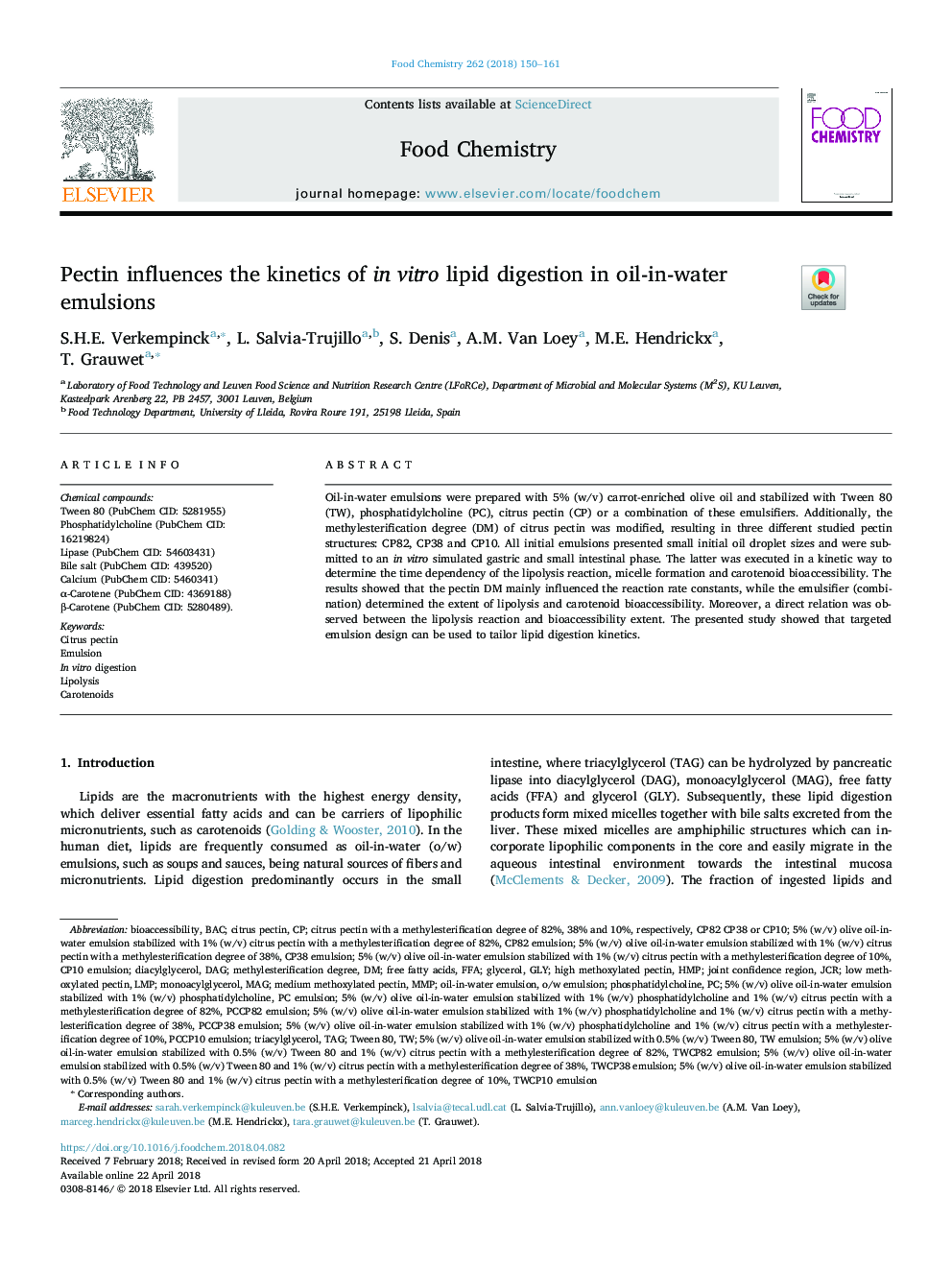| Article ID | Journal | Published Year | Pages | File Type |
|---|---|---|---|---|
| 7584842 | Food Chemistry | 2018 | 12 Pages |
Abstract
Oil-in-water emulsions were prepared with 5% (w/v) carrot-enriched olive oil and stabilized with Tween 80 (TW), phosphatidylcholine (PC), citrus pectin (CP) or a combination of these emulsifiers. Additionally, the methylesterification degree (DM) of citrus pectin was modified, resulting in three different studied pectin structures: CP82, CP38 and CP10. All initial emulsions presented small initial oil droplet sizes and were submitted to an in vitro simulated gastric and small intestinal phase. The latter was executed in a kinetic way to determine the time dependency of the lipolysis reaction, micelle formation and carotenoid bioaccessibility. The results showed that the pectin DM mainly influenced the reaction rate constants, while the emulsifier (combination) determined the extent of lipolysis and carotenoid bioaccessibility. Moreover, a direct relation was observed between the lipolysis reaction and bioaccessibility extent. The presented study showed that targeted emulsion design can be used to tailor lipid digestion kinetics.
Keywords
Joint confidence regionJcrMMPCalcium (PubChem CID: 5460341)LMPHMPTween 80 (PubChem CID: 5281955)α-Carotene (PubChem CID: 4369188)Tween 80FFAmonoacylglycerolMAGBACFree fatty acidsEmulsionO/W emulsionOil-in-water emulsiontriacylglycerolTAG یا triacylglycerols BioaccessibilitydiacylglycerolDAGphosphatidylcholineLipolysisIn vitro digestionCitrus pectinCarotenoidsGlyGlycerol
Related Topics
Physical Sciences and Engineering
Chemistry
Analytical Chemistry
Authors
S.H.E. Verkempinck, L. Salvia-Trujillo, S. Denis, A.M. Van Loey, M.E. Hendrickx, T. Grauwet,
